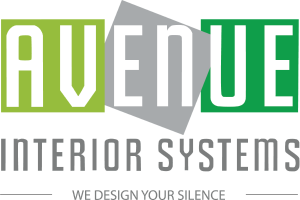How office designs are changing for management and staff
In this post-pandemic world, it has become common to hear people talk about “the new normal.” Yet the reality is that change was a constant, even before COVID hit us – all you need to think about is the latest smart device and how outdated your current one is to show how fast change was happening. If anything, the pace of change is likely to accelerate once we move on from the pandemic response mode.
To quote from the Viatechnik article The Agility Factor in The Post-COVID Environment, “There has been a fundamental shift in how human beings live, work and play.”
Post-COVID we need to change our mindset – there is not going to be a “new normal”, there won’t be a “next normal”; there will only be change. A business’s agility will determine how it responds and thrives with this change.
How COVID-19 changed the way we work
One of the significant results from the pandemic has been heightened personnel safety concerns. Both management and staff are more aware of their surroundings, such as how close their colleague sits, whether they have access to sanitizer, and the like.

While the majority of workers share expectations of an eventual return to normal, they are preparing for something different – a world in which the possibility of pandemic events is always just around the corner. 96% of Viatechnik’s survey participants say they have either made or are in the process of making a design change to their working spaces as a result of COVID-19. This design change will allow for agility (the ability to respond rapidly and flexibly) if another pandemic occurs.
Some of the design changes include:
- More generous spacing to allow for social distancing (76%)
- Wellness screening (67%)
- Virus resistant or easy to clean surfaces (58%)
- Workplace dividers (57%)
- Adaptable spaces and walls (52%)
What does the future hold for office spaces?
There are two strong opinions on the future of office spaces.
Opinion 1: Demand for office spaces will increase, as each worker will demand more space.
Opinion 2: Demand for office spaces will decrease, as remote work will become more prevalent.
One prominent office developer said they had changed their approach to office development by using less permanent infrastructure – using fewer glass walls and more moveable partitions to create modular designs. Equally important as flexibility in design is health and wellness centric designs – such as including a focus on biophilic designs and using touchless technologies.
Many people are choosing to move from highly populated cities to the suburbs. This relocation has increased the need for co-working spaces. Developers are turning old warehouses into operational co-working facilities.
How Avenue has adapted its products for the post-pandemic world
As a noise control company, Avenue Interior Systems has also needed to demonstrate agility. We have adapted our products to support more web-based meetings, introducing our Calando Booth and Calando Desk. We have seen a rise in demand for products such as ECO Flex, a freestanding panel system that combines flexibility, acoustics and aesthetics into the one innovative panel. ECO Flex panels help to adhere to social distancing rules, by creating unique spaces and improving acoustics.
Open offices, co-working spaces and working from home all present a different challenge to personnel. That threat is too much noise, causing distractions, loss of productivity and miscommunication.
While offices prepare themselves for a world where another pandemic is just around the corner, Avenue can help you be agile, protect your personnel and continue to operate throughout a variety of changes.
Talk to Avenue about soundproofing solutions for community centres
Avenue Interior Systems products have the functionality you need to achieve social distancing, protect employees from noise, and prevent a downturn in productivity.
Whether your office challenge is noise-related or you need partitioning, the Avenue team will be happy to work with you.



